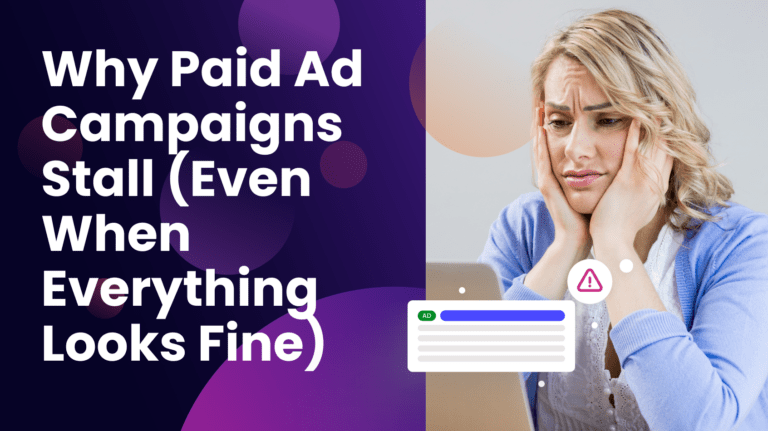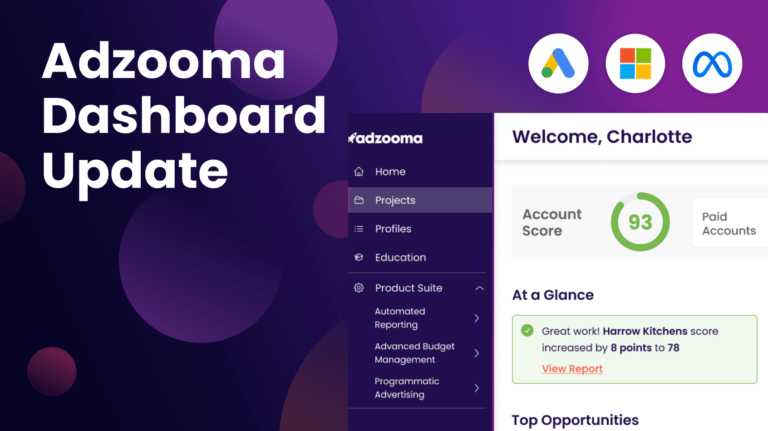Part of bidding on keywords for your PPC campaign involves choosing a match type to inform Google how to regulate its resources in matching your ad to user inquiries. You may wish for Google to focus on specific areas and less so on others. This article explores the different match types available, looking at the features of each and how they apply in different scenarios to help you attain success in your SEO efforts
What are match types?
Match types, or keyword match types, determine how much the keyword needs to match with the user’s search query, which affects where the ad falls in the auction. For example, ones with a broader reach tend to match with more search queries, while specific ones capture a narrower range of user queries.
Match types act as filters, sorting through user search inquiries to pick the ones you wish to connect with your ad. Therefore, you can determine the effectiveness of your campaign by selecting the right match type for your present objectives. Note that Google revised the match type definitions in 2021, with a likelihood of future revisions. Therefore, you need to stay updated on any changes the search giant makes.
What types exist?
Let us look at the match types available:
1. Broad match
This match type allows you to reach the widest portion of the users out there, thus pulling the largest traffic volume to your website. It is the default match type assigned to all keywords. Through the broad match, you’ll reach a wide audience without the help of an extensive keyword list. Therefore, it needs the least expertise and input to net you the most traffic to your website.
However, pulling the most traffic to your website does not guarantee a massive conversion. Most of the traffic pulled to your website is from users who chanced upon your ad, meaning they most likely aren’t interested buyers or committed to the search. In addition, the results are unrefined, further minimising the chances of conversions. Furthermore, the keyword selection may be irrelevant to your website and, as such, your offerings.
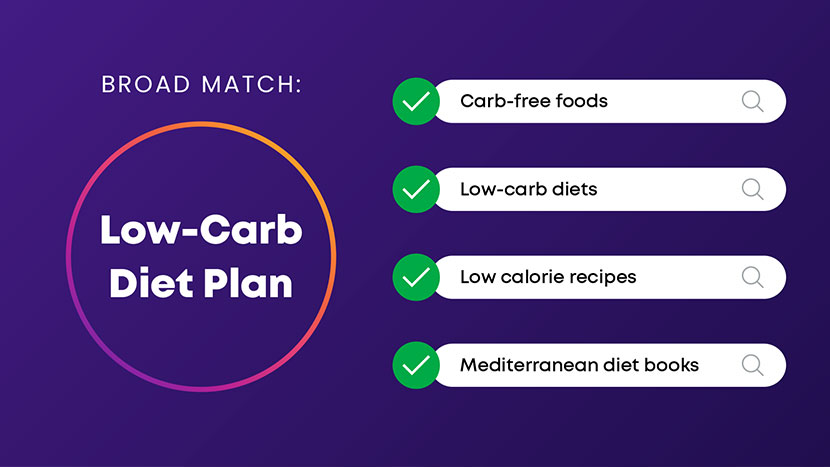
2. Phrase match
The phrase match type gets more specific than the broad match type but pulls relatively large traffic. In this match type, you’ll only get results from searches that match the exact wording of your keywords phrase. Therefore, it matches the search results with the keyword phrase as is, or even arranged differently, but all those words appear nonetheless. Phrase match balances traffic reach with relevance.
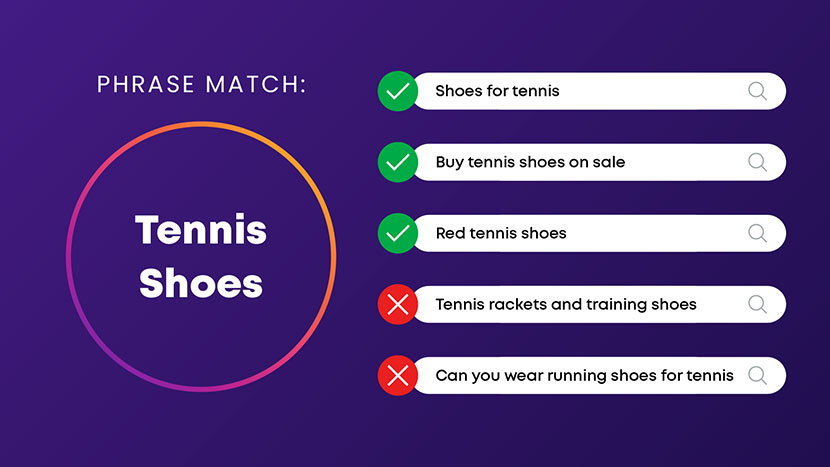
3. Exact match
This type further narrows it down where it produces search results from inquiries with the same meaning or intent as your keyword. Therefore, you’ll have more control over who sees your ad on their search results page, but it produces less traffic than the other match types. The good news is the inclusion of searches with the same meaning as your keywords. Misspellings, abbreviations, stemming, accents, and singular or plural forms will appear in the search results.
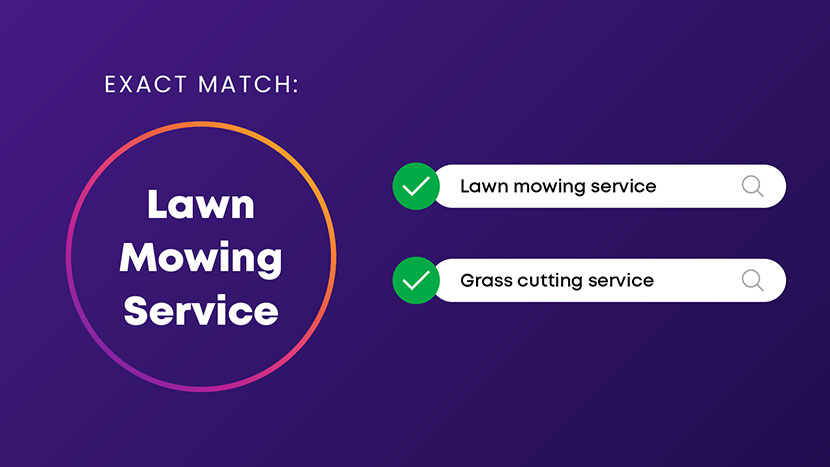
How do these match types affect my SEO efforts?
Match types form the criteria for picking the exact queries to bid on. When choosing a match type for specific keywords, you need to keep certain things in mind:
• A keyword’s performance history: How well a keyword appeals or scores in search engine results can help you pick the right match type for your campaign.
• The competition: The match type your competition selects for certain keywords reveals which are likely to also work for you. Their historical performance should also indicate the ones you need to consider.
• Bids: Note that advertisers bid on keywords while considering a website’s chosen match type. Depending on the choice, they will be aggressive or reserved, so you need to also look at their market presence and performance to help you pick agreeable match types.
• Keyword phrasing: The more specific you are about the keyword phrasing, the more you shift towards using a phrase or exact match. Therefore, you have to decide between being more specific or less so and reaching a wider audience, which inevitably affects how well you rank.
Which match type do I choose?
When deciding which match type to use, you need to consider how effective each is, affecting applicability.
Broad match
This match type works best at the beginning of an SEO campaign and for collecting data on which keywords are effective and which are not. It gives you a basis for refining future search keywords for better and more intentional results.
Additionally, it is also effective for reaching out to users who have visited your site previously. Their familiarity should help filter them out in the large traffic you generate.
Furthermore, a broad match helps you target new markets. While there may be a lot of irrelevant users reaching out, those may form part of a new market you can then explore.
Phrase match
This match type works well when running a targeted campaign with a small audience or niche. The idea is not just to pull traffic to your site but to ensure what you offer resonates well with their needs and reason for searching using those keywords. While broad match went fishing with a net aiming to catch whatever fish, phrase match uses a fishing rod with specific bait that certain fish cannot resist.
One way of forming the phrase is after you have tested the waters using broad match and have seen enough potential in the audience to tell where you’d make a larger impact in the next phase of their search for solutions online.
Exact match
This match type delivers precision like no other option, making it ideal when you have a specific keyword to use or a specific audience to reach. Exact match continues to carry its effectiveness in SEO, despite the proliferation of low-quality and spam-like keywords. Google has taken steps to reduce its impact, thus allowing above-board players to continue utilizing this great option. Therefore, you can apply exact match in the early stages of your campaign if the keyword phrase looks to rope in a significant portion of the target audience. Precision at this early stage streamlines your campaign by making it more efficient.
Additionally, you can apply exact match when a broad match pulls a significant traffic portion. You only need to take that phrase and use it precisely as it is.
Furthermore, you may have it as the best option when working with a tight budget that doesn’t leave much room for trial and error. Since you need to hit the ground running, some research should help you develop the exact match phrase.
Conclusion
Keyword match types afford you control over how and where you show up in search engine results. Advertising through search engines is one of the most effective marketing strategies you can apply, and match types open up your options in the process. When determining which match type to use, focus on the entire SEO campaign process and your budget. In most instances, broad match type allows you to research the market and formulate the next steps.
Alternatively, you can take the guesswork out of this process by hiring the right to handle this process. Reach out to us today and let us show you how we can help you.



